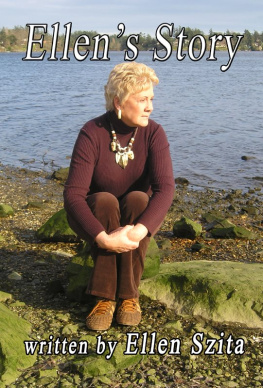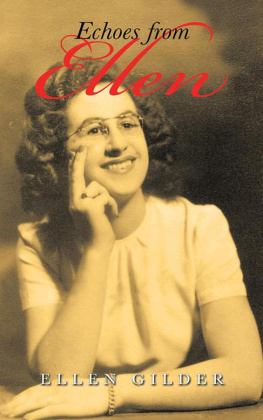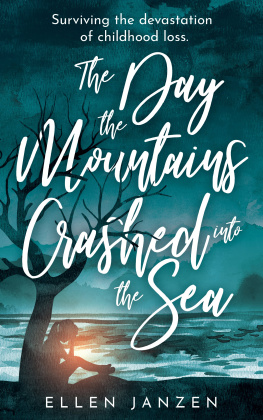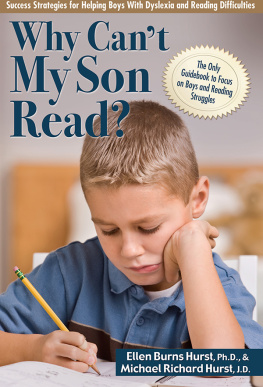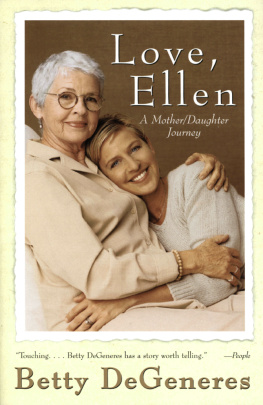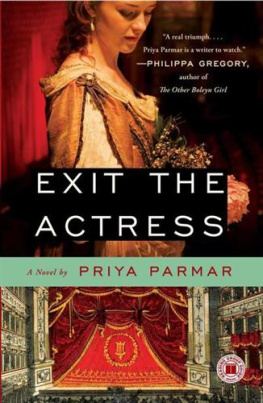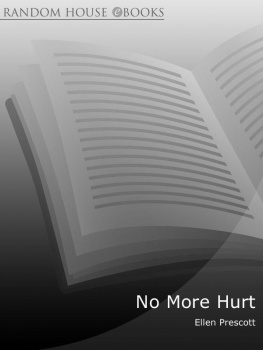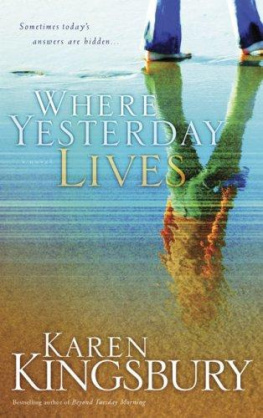
Copyright 2011 Ellen Szita
All rights reserved. No part of this publication may be reproduced, stored in a retrieval system, or transmitted, in any form or by any means, electronic, mechanical, photocopying, recording, or otherwise, without the written prior permission of the author or publisher (See a Book Take a Look).
ISBN: 978-1-4251-2129-7
ePub ISBN: 978-1-927778-03-6
Note for Librarians: A cataloguing record for this book is available from Library and Achieves Canada at: www.collectionscanada.ca/amicus/index-e.html
www.seeabook.com

Contents
Acknowledgement
I would like to acknowledge;
Joan Van Dyke for the editing of this book
The READ Society for their undying devotion and patience in giving me the foundation to a new way of life.
Melanie Austin my teacher, friend and mentor
Andreas my son-in-law who spent many hours helping me, get this book on the road.
Chris Hinz, my photographer and make up artist.
And to,
My four children,
Kim, Anthony, Robert, Carolann
& my son-in-law Jason
And
My five Grandchildren,
Jenna, Shantelle, Jordon, Anthony and Sheena,
Who, without their undying love and support, this book could not have been possible?
To all of you I say thank you for making my dream come true.
Dedication
I dedicate this story to,
My Mother and Father
My brother Billy
My niece Heidi and her
Four children
And Kelly.
God Says Set Them Free
The winds have blown you faraway
but the love in your voices are here to stay.
I hear you speak when the wind comes calling.
I hear you through the winter leafs falling.
I see you in the glistening sun, your mast upon the sea.
I miss you all so very much but God says, to set you
free.
Ellen Szita
PREFACE
Ellens Story is a testament of my persistent struggle for literacy, the crippling defeat I suffered in my adult life due to this problem, and the ultimate steps I needed to take toward triumph.
My story begins in England as World War II breaks out. As a victim of the times and of a society unaware of learning disabilities, I fell further and further behind in a system focused on only achievers. At the age of 18, contemplating a dim future as an ill-educated factory worker and bearing thoughts of suicide, I immigrated to Canada. But dreams of a new life of marriage, children and friendships never came to be; struggles with learning disabilities sabotaged every hope. My marriage failed, I sunk into a deep depression, and I tried to raise four children on welfare. Eventually, after intensive therapy, I was diagnosed with dyslexia and only grade 7 reading skills. Through the incredible support from the Victoria READ Society, a special school in B.C., I came to believe I could learn, and learn I did.
However, my triumphs came with more pain. Literacy problems had devastated my life and my relationships, and I felt an incredible fear knowing the lives Id hurt. But then I learned I was far from alone; there were millions in Canada that were feeling the same shame and hopelessness that I was. What was the true number of people particularly children suffering as a result of this issue?
Expressing these concerns and trying to stop this devastating cycle became my passion. I joined civic, provincial and even federal literacy movements. I began speaking at schools, universities, local organizations, prisons and conferences. I published poetry and short stories and wrote articles for newspapers and magazines. I gave workshops for teachers, social workers, doctors, administrators, and government officials, and I lobbied for literacy on Parliament Hill.
A Day in the Life of a Year, Peter Gzowskis article about my literacy problems and the devastation it caused me, was published in Canadian Living Magazine in 1991 and drew attention to the issue. The following year the award-winning Robert Duncans documentary Ellens Story was released to international acclaim. This very public exposure forced me to relive my painful childhood at school. But parts were missing because I had not healed enough to tell the whole story at that time. Since then I have found the courage to tell all in my book.
The terrible effects of literacy and numerous problems on human health, wealth and happiness are unseen. The victims face lifelong shame, guilt and failure. I hope my story will open eyes to the real destruction of this hidden epidemic and give courage to those willing to come forward and attend classes. But more importantly, since less than 5% of adults with learning difficulties seek help, I hope my story will give courage and hope to others.
Low literacy is a growing concern in industrialized countries as the demand of the work force and global economy changes. Organizations, agencies and individuals at all levels have begun to seek solutions. I hope that my book will add an important and often unheard voice to the discussions and for the many voices of Adult Learners in communities around the world who live in silent darkness.

CHAPTER 1
Daisies Beside The Train Tracks
I remember clearly the day we arrived at our new home; it was shortly after the Second World War, August 8, 1948, my sister Sylvias birthday. She was seven, a year younger than me. My parents moved from downtown Brighton into the country. However, we would still be living in Brighton, Sussex. It was strange having my father home. He had been in the navy most of his life but when the war ended he left.
The new house was beautiful, with a garden both back and front. Once inside the house, I ran to the top of stairs and peered out the window that faced the front of the house. I was in awe at being in the country. There were cows in the field directly across from us, and at the bottom of the road was a tunnel. As I watched a train pass over the top the noise from the steam engine, the blowing of the whistle and the puffs of smoke made my skin tingle. For a while, I watched the movers bringing in the furniture. Then I heard my sister Sylvia calling, Ellen, lets go into the fields.
Big beautiful daisies that came up to our knees bloomed all along the embankment of the train tracks. They were the largest Id ever seen, and the fields below were full of buttercups and clovers and various other wild flowers. The smell was wonderful, quite different from the ocean air we were used to. Sylvia and I sat making daisy chains. Laughing, she put one on her head. Her hair was a lighter brown than mine. I always thought of her as a porcelain doll, her face pale and shiny. We spent many happy days in these fields, and on occasion, as the train went by, the fireman would blow his whistle and wave. It made me feel special.
My sister Ann was the oldest, then came Billy, who was two years older than me. I was eight at the time. Sylvia was next then Bobby, who was five, and Joan, three. We all had straight dark hair and dark eyes, except Bobby, who was a complete contrast to the rest of us. He had very curly blonde hair with striking blue eyes and a freckled face.
Billy, Sylvia, Bobby and I often went into the woods and climbed my favorite tree. This tree stood out from all the others because it was dead. But its huge trunk and big branches seemed to invite me. Over the next few years, I climbed to the top many times, giving myself a feeling of accomplishment, something I rarely felt. One day Billy took out his penknife and carved a heart into the tree with an arrow through it, putting our initials inside.
Next page
